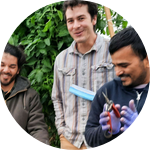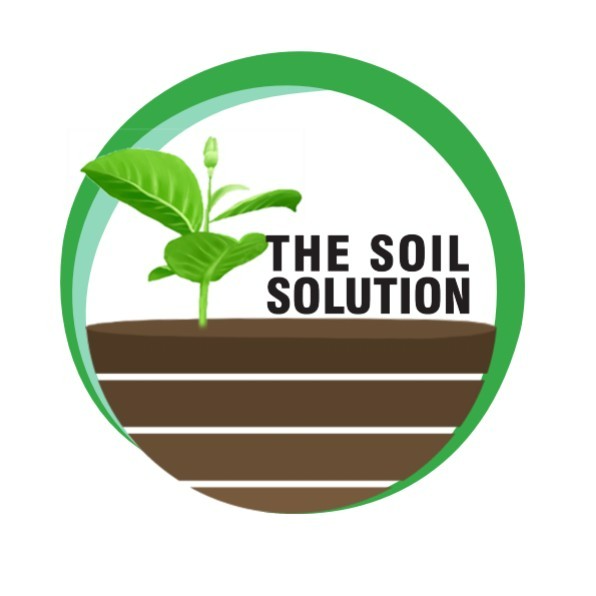About This Project
This Woman Horticultural Garden was established in 1996. The garden is about 23 hectares of land and hosts about 500 women whose livelihood depends on their harvest. However, the long use of plastic mulching and compost material has raised many questions related to microplastics, and plastic contamination, arising from plastic mulching and compost which has microplastic materials. The study is aimed to assess the cause of this distress by The Soil Solution (NGO)
Ask the Scientists
Join The DiscussionWhat is the context of this research?
The Banjulinding Women Community Horticultural Garden was re-established by the second President of the Gambia in 1996 after initial support from the World Bank. The Garden is about 23 hectares of land and is customarily the main source of income for most women in this community. However, with the use of plastic mulching and the intensive use of compost material, there has been a decline in production in the garden. Many scientists and researchers believe that the decline is due to soil distress by microplastic contamination, arising from plastic mulching and the use of compost which has microplastic materials. This study aims to assess the cause and impact of this distress by “The Soil Solution” (NGO). Reference Citation
What is the significance of this project?
The findings will inform strategies to:
1. Reduce microplastic contamination in the Garden by; composting wisely to avoid adding commercially produced compost or yard waste containing plastic fragments to their garden beds Opt for homemade compost made with organic materials and ensure to remove any plastic bits before adding them to the pile and to mulch consciously.
2. Promote sustainable practices for healthy soil and safe food production by adopting sustainable soil management practices which are the foundation for safe food production these include practices such as; crop rotation, cover cropping, reduced tillage, composting food scraps and yard waste create a nutrient-rich amendment that improves soil health.
What are the goals of the project?
Objectives:
1. Assess the level of microplastic contamination: To quantify microplastic presence and type in the soil and evaluate the impact of microplastics on this particular community garden and soil health indicators likewise the potential effects on plant growth (yield, height, biomass).
2. Understand the impact on soil health: Investigate how microplastics affect soil properties and microbial activity, which are crucial for plant growth and equally evaluate potential risks to food safety if microplastics are being taken up by plants and potentially pose a risk to human consumption
3. Inform best practices: The findings can inform recommendations for alternative mulching materials and practices to minimize microplastic contamination in community gardens.
Budget
Methodology
This study is designed to be completed within a $9,950 budget. Cost allocation will be prioritised to; 1. soil sample collection and microplastic analysis: collect soil samples from various plots with and without plastic mulch/compost history. Focus on optimizing sample numbers within budget constraints and quantifying microplastic levels. Partner with local universities or research institutions for potential collaboration on analysis. 2. Soil Health Assessment: Conduct basic tests focusing on key indicators like microbial activity and nutrient content using commercially available soil test kits and finally 3. Plant Growth Monitoring: Monitor plant growth parameters in designated plots throughout the growing season.
Endorsed by
 Project Timeline
Project Timeline
The study is expected to be completed within six (6) months from the time it has reached its funding goal.
May 29, 2024
Project Launched
Jun 30, 2024
Secure research partners and finalize the sampling strategy. Collect soil samples from designated plots in the community garden
Jul 31, 2024
-Preliminary analysis of soil samples to assess the feasibility of the chosen microplastic analysis method. -Methodology for soil health assessment and plant growth monitoring.
Aug 31, 2024
Complete microplastic analysis of soil samples and conduct soil health assessment using chosen methods
Sep 30, 2024
Begin plant growth monitoring in designated plots
Meet the Team
Team Bio
We have a team of experts in soils, natural resources and environment with decades of experience. See our website: www.thesoilsolution.gm
Ebrima Jarra
Ebrima's mission is to work with grassroots organisations, governments, civil society, the private sector and others to address socio-economic challenges related to food security and ecosystem system services in local communities in Gambia/Africa.
Lab Notes
Nothing posted yet.
Additional Information
This study offers a cost-effective approach to assess microplastic contamination in a women's community garden. The findings will guide plastic use and promote best practices for sustainable environmental management, and healthy local food production while maintaining the ecosystem and helping to achieve the donor's target.
We recognize the critical importance of addressing plastic pollution and its associated risks to human health and the environment. We believe small community actions are essential to achieve this goal and ensure a healthy approach within the international frameworks on plastic pollution.
Project Backers
- 2Backers
- 1%Funded
- $70Total Donations
- $35.00Average Donation


